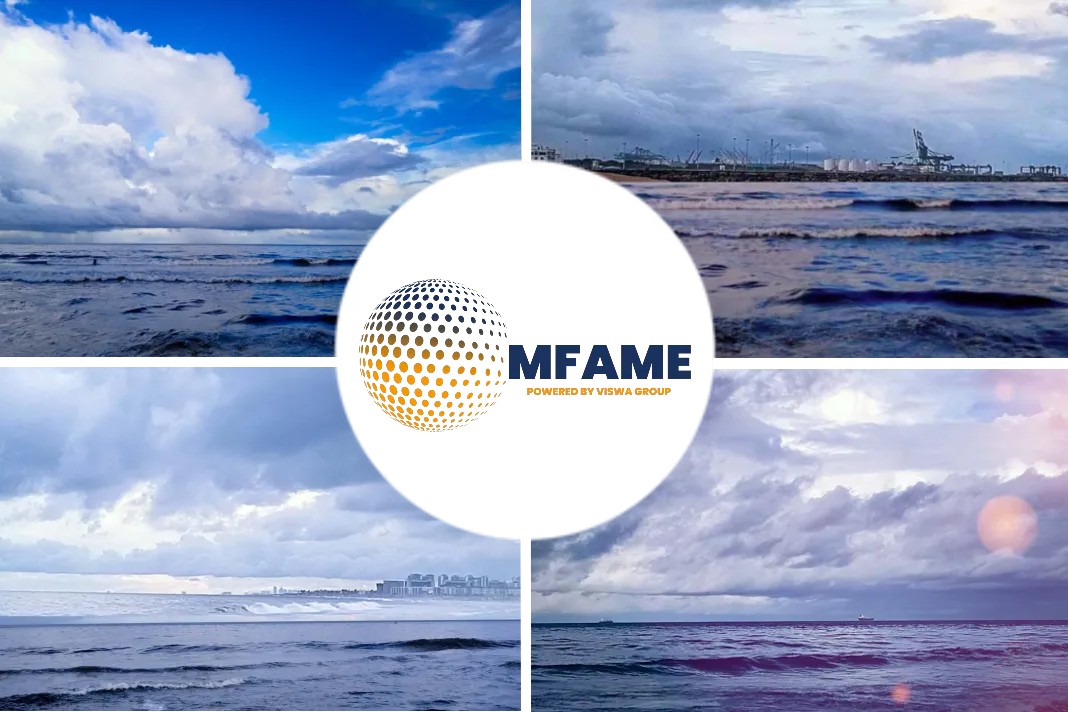 DHL Global Forwarding’s Vice President, Global Head of GoGreen Program, wants to make the case for carbon insetting in shipping. As she explains to Bunkerspot: What this world actually needs is a process which is as easy as offsetting but which helps to reduce CO2 emissions within the transport industry, says an article published on bunkerspot website.
DHL Global Forwarding’s Vice President, Global Head of GoGreen Program, wants to make the case for carbon insetting in shipping. As she explains to Bunkerspot: What this world actually needs is a process which is as easy as offsetting but which helps to reduce CO2 emissions within the transport industry, says an article published on bunkerspot website.
Money spent
While Brost is careful not to dismiss the many important offsetting projects, she notes that 99% of the money which is spent on the voluntary carbon offset market is directed to projects outside the transport sector. Insetting, on the other hand, sees the investment made directly in the freight transportation industry to drive the decarbonisation of the sector.
‘The transport industry, especially the carriers, they desperately need money, so, basically, money spent on offsetting is not available for the transport sector to decarbonise,’ says Brost. ‘We have published quite a bit on this concept of insetting because we also want to place a call to action – we believe that everyone involved in the transport and logistic chain should play a role in the decarbonisation of transport. The carriers cannot do it by themselves, it’s far too expensive and it also takes too much time.’
DHL’s ocean freight operations
Last year, DHL Global Forwarding laid claim to a significant industry milestone when it announced it was to become ‘the first logistics service provider to offer truly climate neutral ocean freight shipments without additional costs’. To achieve this, the freight forwarder established a new green service focusing on using sustainable marine biofuel to neutralise the carbon emissions of all less-than-container load (LCL) ocean freight shipments from 1 January 2021.
Such was the success of the LCL initiative, the Germany-based company has now decided to roll the service out to full-container load (FCL) shipments as well – and it is already being well received. At the end of the year, DHL’s customers will receive a verified certificate showing exactly how much CO2 was reduced on their behalf which they can then take to their own auditors to really deduct it from their carbon footprint.
DHL’s ocean freight operations are 100% sub-contracted and according to Brost, the only major reduction lever, aside from operational efficiency gains, is the use of sustainable marine fuel. Accordingly, the company is aiming to reach, indirectly through its carriers, a share of approximately 30% of sustainable marine fuel by 2030.
Sustainable marine fuel
The sustainable marine fuel in question is biofuel, something which comes in many forms, and whose environmental credentials differ depending on their source. DHL Global Forwarding has a biofuels policy in place – ‘we will not just take any biofuel’, says Brost. In theory, this target of using 30% biofuel in its container shipping operations is ‘easy’, though, in practice, it is a trickier proposition as the company does not own its own vessels.
‘We need carrier partners to bunker and consume the fuel on our behalf,’ says Brost. ‘And of course right now there isn’t enough sustainable marine fuel available with our carriers, so it’s the carriers who have to also increase the consumption, who have to bunker sustainable marine fuel.’
DHL is also closely monitoring the progress of other alternative marine fuels, such as ammonia and batteries, as well as wind solutions such as Norsepower’s Flettner rotor, but for the time being, the focus will be on sustainable biofuels. In introducing the marine biofuel service for LCLs and FCLs, DHL is seeking to go one step further and demonstrate to the shipping industry and fellow forwarders that it is ‘actually possible to support the switch to sustainable marine fuel’.
Summary
- DHL Global Forwarding’s Vice President, Global Head of GoGreen Program, wants to make the case for carbon insetting in shipping.
- While Brost is careful not to dismiss the many important offsetting projects, she notes that 99% of the money which is spent on the voluntary carbon offset market.
- DHL Global Forwarding laid claim to a significant industry milestone when it announced it was to become ‘the first logistics service provider to offer truly climate neutral ocean freight shipments without additional costs’.
- The sustainable marine fuel in question is biofuel, something which comes in many forms, and whose environmental credentials differ depending on their source.
Did you subscribe to our daily newsletter?
It’s Free! Click here to Subscribe!
Source: bunkerspot

















